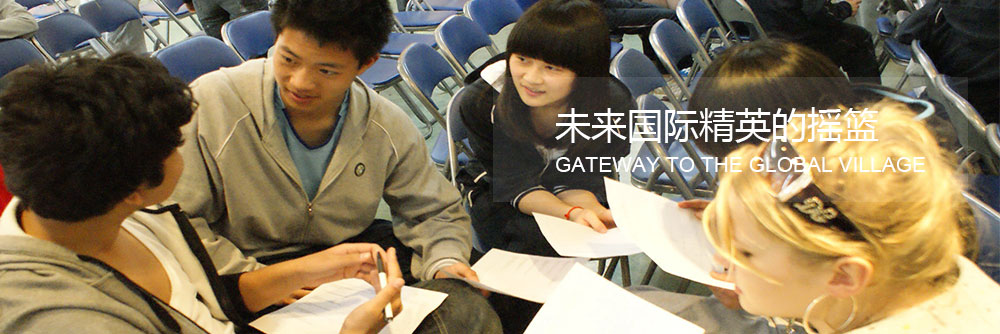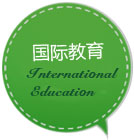西外高中国际课程部教师赴陕师附中参加剑桥国际课程培训
2017-10-20 西外小初高双语
一个学校的发展,离不开学生和教师的发展;只有教师和学生共同发展,才能促进现代学校的发展。

打个比方,学校是舟,教师是水,只有教师——”水“的发展才能推动”舟“的前行。优秀的教师队伍是学校可持续发展的不竭资源。只有教师的发展顺应了时代要求,才能促进学生素质的逐步提高,才能真正促进学校的发展。因此,学校要为教师的发展提供一个良好的平台。
今年,我校正式成为AP学校和剑桥国际学校。面对这样的机遇和挑战,也借此平台,学校很多教师开始不间断地参加各种高规格的培训。上一周,高中国际课程部的四位老师应陕西师范大学附属中学邀请,远赴陕西参加了剑桥国际考试委员会举办的剑桥国际课程培训。
 以下是两个老师的分享:
以下是两个老师的分享:
1
从上海虹桥到西安咸阳,短短两天的剑桥课程初级培训结束了,在此分享一下本次的培训感悟。
本次培训的地点是陕西师范大学附属中学国际部,培训的学科有A-LEVEL的高等数学、物理、化学和经济学,均由外教全英语授课。全新的教学楼,整齐有序的教室布置,还有物理实验室、化学实验室,茶水间(休息室)以及专业的指引和精心准备的培训材料等都给我留下了深刻的印象。
在这里你能遇到来自全国各地的培训者(比如上海、武汉、北京,还包括一些外籍教师),个个都是国际教育的精英。不同皮肤、不同地区的人们汇聚一堂,共同探讨和分享各自的教学经验。

培训形式主要以小组讨论和展示为主,教师阐述基本的原理,学员可以随时提问和交流,当然不同的学科也有差别,比如物理、化学还包括一些实验操作。以数学学科为例,本次培训主要讲述了近几年来教学大纲的变化和将来的发展趋势,考试该如何进行阅卷和批改,考试后的分析报告,通过培训如何来改进自己的教学方法等。印象最深的是关于Active learning的学习,学员们分成几个小组讨论并展示一种积极有效的教学模式和课例来让学生能够主动参与学习,提高教学效果。在这里可以学到很多以前自己未曾想到的方法。
通过此次培训我也感受到了A-LEVEL课程对教师提出的更高的要求。以数学学科为例,分为Mathematics(基础数学)和Further Mathematics(高等数学),这两种数学都还分成Pure Math(纯数学), Statistics(统计学)和Mechanics(力学)三个部分。教师首先必须熟悉教材内容、教学大纲及考试要求,这里包括了国内大部分高中数学老师都不熟悉的高等数学、统计学和力学(物理的一个分支)。当然A-LEVEL课程对学生的学习要求也非常高,它的难度和要求都在AP考试之上,即便是西外的H班,真正有能力去攻克的学生人数也是非常有限的。通过本次培训我觉得在接下来的教学过程中我得先去钻研教材和试卷,这样才能在今后的教学中做好准备。
(数学老师瞿勇)

外教 Michael T也写下了自己的感悟:
(Michael Tokarz:Economics Teacher, AP Coordinator)
2
Four teachers attended a Cambridge International Examinations (CIE) Professional Development in Xi’an on October 14th and 15th. As a new Cambridge Education partner, we at Xiwai have added to our outstanding curriculum, and now mark a new stage in our students’ journeys with internationally recognized excellence. These two days of training were a valuable experience for our teachers. Here is a quick review from my perspective.
Arriving at the International Department of SSDFZ campus on Saturday morning, I was greeted by courteous, bright-eyed students who helped me find my way to the training session. Every one of the well-mannered, well-spoken student volunteers was happily sacrificing their free time to be there to support the event’s success. It was a strong start. I registered at the front desk, welcomed by school staff and Cambridge personnel. Then it was on to get some tea and greet my trainer and 11 classmates.

When your examination training class is led by a highly experienced educator who is also the Head Examiner, you know you are in for an insight-filled class. These two days were chock full with knowledge that will be immediately applicable to all of my classes, not just the Cambridge ones. We shared teaching strategies, activities, resources, and test strategies and tips. Many of these tips apply to many levels and types of Exams. Some of these key tips are as follows.
Students do not read the questions carefully. This proved to be common among all teachers in this class. By failing to read questions carefully students are leaving points on the table. Students—be sure to read the questions carefully and understand what the question is asking you to do. Questions have hints embedded. By closely reading and fully understanding the question (and the type of response it asks for) and you will be led to more points. This is the number one tip!

Students can use local examples in their written responses. Since Cambridge Examinations are offered in 104 countries, Examiners expect to see student responses reflect local conditions. A student in China need not study up on Economic conditions in London to receive full marks. Also, students need not worry that Examiners have no knowledge of their local conditions. The Internet is a fantastic tool for research for both students and Examiners
The Economics exam is not an English test. Spelling and grammar do not affect marks. As long as the responses are legible, Examiners will mark based on content. Students should be mindful to make their work readable by dividing their work into clear paragraphs. The people who mark exam papers are humans, too. Making their job easier by making your paper easier to read will help earn the benefit of the doubt when it comes to marks. For example, if an examiner is not sure whether a response should earn 7 or 8 points, clearly legible handwriting and paragraphs will help you earn 8 points.
In closing, even though this training was for oriented for A levels, there are valuable lessons which are applicable to multiple levels of Cambridge Exams. I look forward to sharing this knowledge with the rest of my Xiwai colleagues so that all our students in Cambridge classes can reap the benefits.
中文版
14日和月15日,西外高中国际课程部的四位教师参加了在西安的剑桥国际考试委员会(CIE)专业发展培训。作为一个新的剑桥教育的合作伙伴,西外加入了很多优秀课程。这标志着我们的学生在国际化方面上升到了一个新的阶段。这两天的培训对我们的老师来说是一份宝贵的经验。以下是我的回顾。
星期六上午我们到了陕师大附中国际部,接待我们的是一群有礼貌、眼神明亮的学生们。他们把我们带到了培训地点。每一个学生都彬彬有礼、说话得体。他们都乐于牺牲他们的空闲时间充当这个活动的志愿者。这就是一个良好的开始。然后我们在前台进行登记,并受到了学校工作人员和剑桥工作人员的热烈欢迎。再然后,我去喝了点茶,同我的培训老师以及11个同学打了个招呼。
一位经验丰富的教育者主管我们的培训,同时他也是主考官。这是个富有洞察力的课程。这两天充满了知识,而这些知识都可以马上运用于剑桥的课程。我们一起分享教学策略、活动、资源和考试策略等。
考试培训老师关于考试的讲座给了我许多启示,这些启示适用于很多级别和类型的考试。其中一些关键提示如下:
1.学生不仔细看问题。这是一个普遍现象。由于学生没有仔细阅读问题,会导致丢分。学生一定要仔细阅读问题,理解问题要你做什么。问题隐含着提示。通过仔细阅读和充分理解这个问题,你将得到更多的分数。这是最重要的一点!
2.学生可以在他们的书面回答中运用当地的例子。由于104个国家都有剑桥考试,主考人希望看到学生能够反映当地的情况。一个中国的学生不需要通过研究伦敦的经济情况得到满分。此外,学生不必担心主考者不了解当地的情况。互联网极好的工具。
3.经济学考试不是英语考试。拼写和语法不影响标记。只要回答清晰,主考者就会根据内容进行打分。学生应该注意把作品分成清晰的段落,使他们的作品可读性更强。你的论文越容易阅读、自己越清晰,你就会得到越好的分数。例如,如果考官不确定一个学生的回答应该得7还是8分,那么清晰易读的笔迹和段落将会帮助你获得8分。
尽管这次培训是面向A-level的,但有一些宝贵的经验教训适用于多层次的剑桥考试。我期待着与西外的同事分享这方面的知识,因此所有剑桥班的学生都可以受益。
翻译:石懿舒
”学无止境!“经过为期两天的培训,相信这四位老师对剑桥课程和考试都有了更全新的认识。我们期待他们将自己的所学运用到未来的教学中去,为学校剑桥国际课程的发展注入新的活力!



